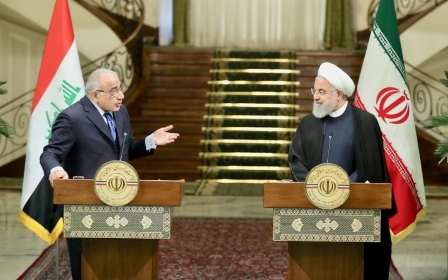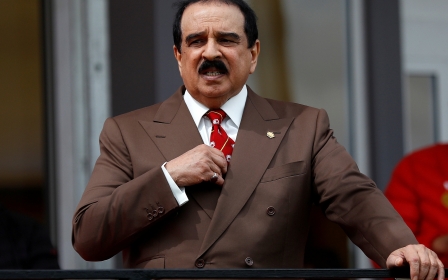Baghdad condemns Bahrain foreign minister for claiming Iran runs Iraq and insulting cleric
Baghdad has demanded an apology from Bahrain after its foreign minister said that Iran controlled Iraq and criticised Shia cleric Moqtada al-Sadr, one if Iraq's most senior politicians.
In a statement posted on its website on Sunday, the Iraqi foreign ministry described Khalid bin Ahmed comments as "unacceptable" and harming to Iraq's sovereignty.
"The words of the Bahraini Foreign Minister represent Bahraini diplomacy and offend Mr Moqtada al-Sadr with offensive words," the statement said.
"They are totally unacceptable in diplomatic practice. They also harm Iraq, its sovereignty and independence, especially when the Bahraini Minister speaks of Iraq being under the control of neighbouring Iran."
On Saturday, Ahmed criticised Sadr, whose political bloc won the most seats in last year's parliamentary elections, for condemning the conflicts in Yemen, Bahrain, and Syria and demanding their leaders' immediate departure.
"Muqtada it seems is worried about the rise of interference in Iraqi matters," Ahmed wrote on Twitter.
"Instead of putting his finger on the wound of Iraq by directing his words to the Iranian regime which is controlling his country, he chose the peaceful road and directed his words to Bahrain."
Bahrain also summoned the Iraqi charge d'affaires in response to Sadr's comments.
In a statement posted on Saturday, Bahrain's Ministry of Foreign Affairs said Sadr's statements were a "blatant and unacceptable interference in the internal affairs of Bahrain".
"The Undersecretary stated that Bahrain is committed to its approach of non-interference in the internal affairs of other states, adding that the Kingdom calls upon the Iraqi government to deter such inciting statements that lead to difficult situations," Manama wrote.
"He affirmed that Bahrain will not accept any form of violation or interference in its affairs from any party and that it will take all the necessary measures to preserve its sovereignty, independence, peace and stability."
Middle East Eye propose une couverture et une analyse indépendantes et incomparables du Moyen-Orient, de l’Afrique du Nord et d’autres régions du monde. Pour en savoir plus sur la reprise de ce contenu et les frais qui s’appliquent, veuillez remplir ce formulaire [en anglais]. Pour en savoir plus sur MEE, cliquez ici [en anglais].




